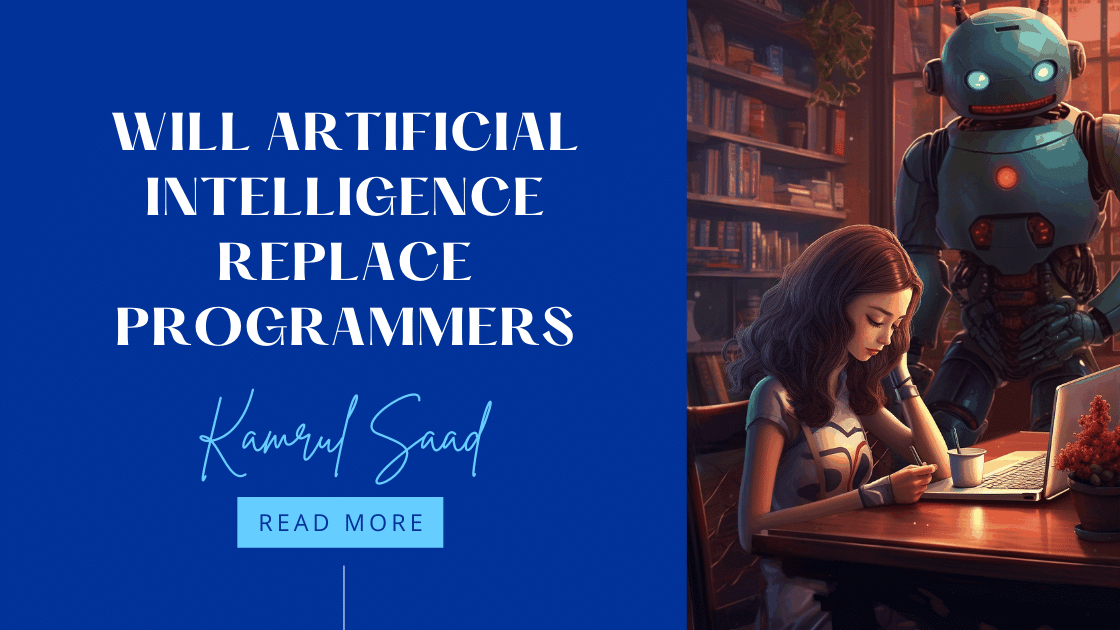Artificial Intelligence or AI may replace programmers in the future? Does this mean our jobs are at stake?
As technology advances, AI is becoming increasingly capable of automating programming tasks. This has led to concerns about whether it will ultimately replace human programmers i.e. us. While AI can automate boring and repetitive coding tasks, it will unlikely replace programmers completely.
Programmers bring creativity, problem-solving skills, and domain knowledge that AI lacks far beyond this day. Programming involves more than just writing code; it requires communication, understanding user needs, and making logical decisions, which AI has yet to achieve today. While AI can enhance and streamline the programming process, we programmers are still essential for complex and critical tasks.
In this article, I will explain the context of the present world of Artificial Intelligence and its impact on programmers to be replaced. By going through this article, you will have a clear understanding of the current scenario and what you can do to prevent any dangerous impact on your career.
The Impact Of Artificial Intelligence In Programming
Artificial Intelligence has already revolutionized the Programming world. The impact of AI in programming is gaining attention as more advancements are made in machine learning and automation. With the evolution of ChatGPT, many difficult problems, which took us days and nights of coding, can be solved in the blink of an eye. Not only ChatGPT, many other applications like GitHub Co-Pilot, Replit Ghostwriter, TabNine, etc. have been conquering the world of programming from before.
Let us discuss the potential of these AI tools for automating programmer’s jobs.
AI’s Potential In Automating Coding Tasks:
- Automate repetitive coding tasks, saving time and effort.
- Natural Language Processing (NLP) algorithms enable AI to understand and convert human language into code.
- Machine Learning algorithms can analyze vast amounts of code to identify patterns and generate optimized solutions.
- Assist in debugging and error detection.
- Automated code generation tools can potentially increase productivity and efficiency in programming.
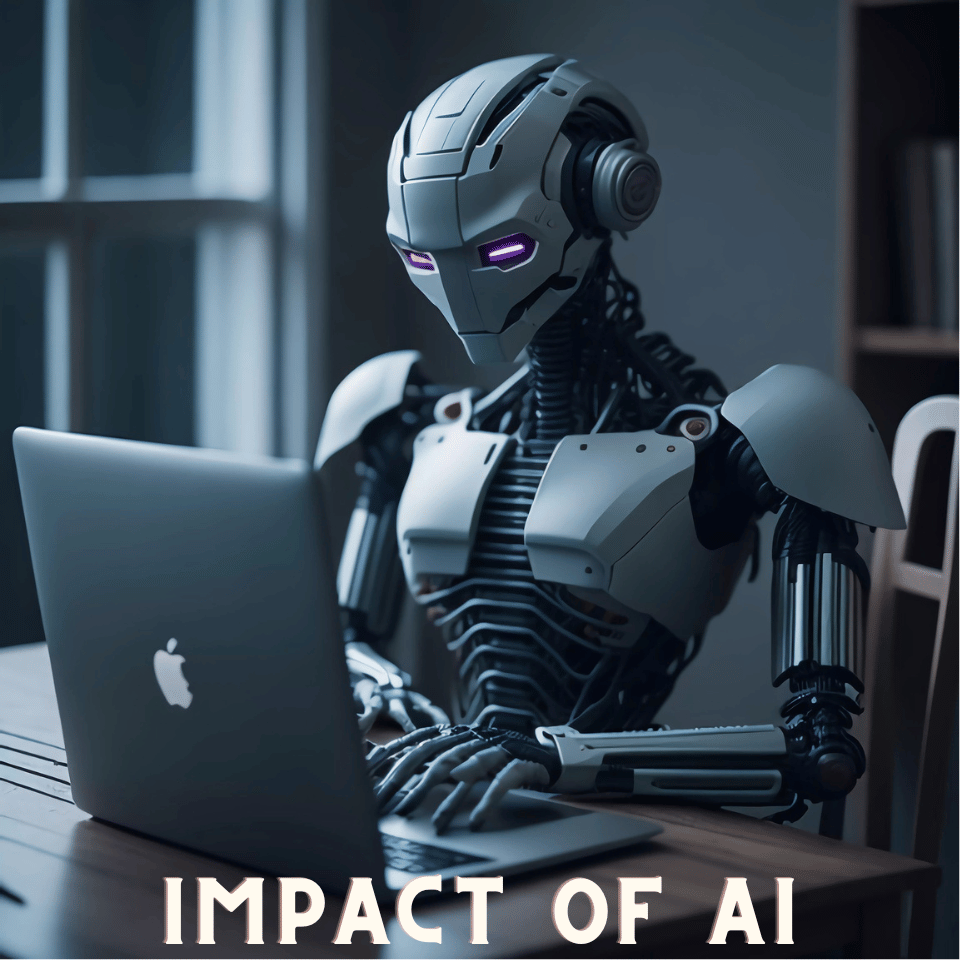
The impact of AI in programming is undeniable. With its huge potential to automate coding tasks and the rise of AI-powered coding tools, programmers can benefit from increased productivity, efficiency, and code quality. But the question remains: whether or not the future has come where AI will kick me out of my job?
The Evolution Of Programming Languages
As programming languages evolve, whether artificial intelligence will replace programmers arises. AI has become integral to our lives, transforming various industries and shaping how we live and work. The realm of programming is no exception to this technological revolution. While whether AI will replace programmers entirely is still debatable, one thing is certain – it significantly influences the design and development of programming languages.
This section will explore the evolution of programming languages and how AI advancements drive new programming paradigms.
AI’s Influence On Programming Language Design And Development:
- Neural Networks: AI’s influence on programming languages can be seen in the rise of neural networks, which are algorithms inspired by the human brain. These networks have led to the development neural programming languages that can process and learn from vast amounts of data.
- Natural Language Processing (NLP): NLP, a branch of AI, focuses on enabling computers to understand and process human language. Programming languages incorporate NLP capabilities, allowing developers to write code using natural language instead of traditional syntax.
- Automated Code Generation: AI-powered tools are emerging that can automatically generate code based on high-level requirements or design specifications. This streamlines the development process, reducing time and effort.
- Intelligent Debugging: Debugging complex code can be time-consuming, but AI-driven tools analyze code to identify potential errors and suggest solutions.
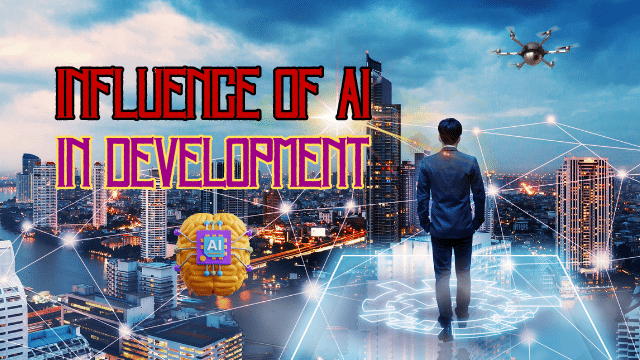
New Programming Paradigms Driven By AI Advancements:
- Machine Learning Languages: With AI as the driving force, programming languages focused on machine learning have gained immense popularity. These languages provide specialized functionalities and libraries that simplify the implementation of complex machine-learning algorithms.
- Reinforcement Learning Languages: Reinforcement learning, a subset of machine learning, enables autonomous decision-making by training algorithms through trial and error. New programming paradigms are emerging that simplify the development of reinforcement learning applications, making them more accessible to programmers.
- Genetic Programming: Inspired by the principles of natural evolution, genetic programming allows programs to evolve over time by applying genetic algorithms. AI advancements have led to the developing of programming languages that can facilitate this form of programming.
- Cognitive Architectures: Cognitive architectures seek to emulate human-like intelligence in machines. Programming paradigms centered around cognitive architectures are evolving, allowing programmers to develop systems that can perceive, understand, and reason like humans.
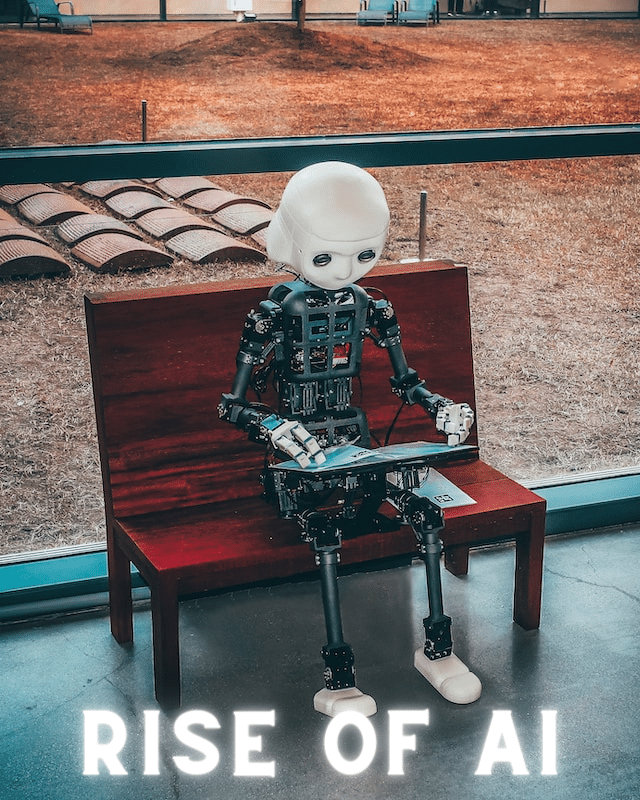
As AI continues to advance, programming languages will undoubtedly undergo further transformation. While the complete replacement of programmers seems unlikely, AI will undoubtedly shape the future of programming, enabling developers to create more intelligent and efficient solutions. The collaboration between human programmers and AI-driven tools holds the potential to revolutionize the field, empowering programmers to achieve greater heights of innovation and efficiency.
AI and Software Development Processes
Artificial Intelligence is revolutionizing software development processes. While AI can assist in automating certain tasks, programmers’ human expertise and creativity are still essential for complex programming challenges. Recently, Google has been promoting their upcoming PROJECT-IDX. This AI-based software development model can build and maintain your full-stack applications with just a single line prompt.
Although it is still an experimental project, think about it: some developers like ourselves are building these massive solutions somewhere, right? Maybe this will make life easier for people who need a proper system built within a short time. But on the other side, at the end of the day, programmers will be needed to oversee the shortcomings of the output this project will generate.
AI’s Impact On Software Development Lifecycle
With its ability to automate complex tasks and process vast amounts of data, AI is transforming the software development lifecycle in numerous ways. Let’s explore how AI is impacting software development processes.
Automating Testing And Debugging With AI:
- Significantly speed up the software testing phase by automatically generating test cases and identifying bugs.
- Analyze code repositories and identify patterns, helping developers spot potential issues and reduce debugging time.
- Detect anomalies and predict possible defects, enabling early bug detection and more efficient debugging processes.
- Analyze code syntax, adhere to best coding practices, suggest improvements, and enhance code quality.
Accelerating Software Development:
- Automating repetitive coding tasks like writing boilerplate code saves developers time and effort. (My Most Favourite)
- Assist in requirements gathering, transforming user requirements into code, reducing ambiguity, and improving accuracy.
- Analyze vast amounts of data and provide insights for code optimization, performance enhancements, and better decision-making during software development.
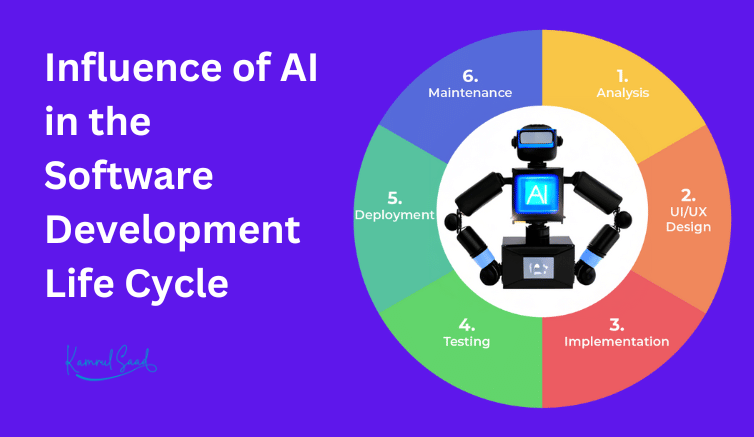
Enhancing Software Maintenance And Support:
- Analyze user feedback and error logs to detect patterns and proactively address issues, improving software maintenance and support processes.
- Provide real-time assistance to users, answering common queries and reducing support team workload.
- Forecast potential issues, enabling proactive maintenance and reducing system downtimes.
Artificial Intelligence is transforming the software development lifecycle, providing developers with powerful tools to enhance productivity, accuracy, and efficiency. When I am developing a project, I use ChatGPT a lot for automating tasks like demo data generation, Github co-pilot for repetitive tasks in the codebase, and so on. Does that keep me in a place of fear that I will lose my job? Absolutely No!
I got into a place where I could be more productive and give time to build logic for my application, forgetting about boring content generation, saving me a lot of time. Programmers like us are always needed to oversee and connect the dots inside our applications. So, no worries, my fellow brothers and sisters. Replacing programmers with Artificial Intelligence will take a lot more than the current circumstances.
AI and Code Generation
Artificial Intelligence shows promise in automating certain aspects of code generation, but it is unlikely to replace programmers like ourselves. While AI can assist in streamlining the coding process, human programmers bring creativity and problem-solving skills that machines cannot replicate, ensuring their continued relevance in the field.
With the rapid advancements in artificial intelligence (AI), it’s only natural to wonder if machines will soon replace programmers. One area where AI is making significant strides is in code generation. Let’s see the potential benefits and limitations of AI-generated code.
Potential Benefits:
- Increased efficiency: AI can generate code much faster than human programmers, reducing development time.
- Enhanced accuracy: AI algorithms can minimize coding errors and bugs, leading to more reliable software.
- Consistency: AI-generated code follows consistent patterns, ensuring uniformity throughout the program.
- Code optimization: AI algorithms can analyze vast amounts of data and optimize code for better performance.
- Scalability: AI can generate code that is easily scalable, accommodating changing requirements and future expansion.
The Limitations And Challenges:
- Lack of creativity: AI algorithms rely on existing patterns and examples, limiting their ability to come up with innovative solutions.
- Limited understanding of context: AI may struggle to comprehend the broader context and user requirements, leading to suboptimal code generation.
- Complexity handling: AI-generated code may struggle with complex logic or intricate algorithms that require human expertise.
- Debugging challenges: AI-generated code can be notoriously difficult to debug, as the underlying decision-making process may not always be transparent.
- Ethical considerations: AI-generated code may pose ethical dilemmas, particularly when it comes to security or privacy concerns.
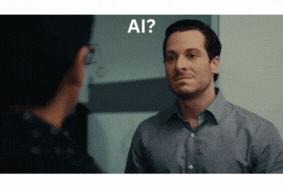
Programmers still play a vital role in understanding user needs, creatively solving problems, and ensuring the ethical implications of the code. The synergy between AI and human programmers is likely to yield the best results, combining the speed and efficiency of AI with the ingenuity and adaptability of human intelligence.
Often, I have been in situations where I thought If I tried to write the code from scratch, maybe a faster and less buggy output would have come out rather than using ChatGPT. The main problem is that AI can barely understand the context of the problem you must solve. In a large-scale project using microservices architecture, it is very unlikely that AI can generate the whole codebase for you.
AI’s Role In Software Maintenance
Artificial intelligence is revolutionizing software maintenance, but can it replace programmers? While AI has the potential to automate various aspects of the software development process, it also plays a significant role in software maintenance. Let’s explore how AI-based monitoring and alert systems and automating software updates and patches transform the picture of software maintenance.
Ai-Based Monitoring And Alert Systems:
AI-powered monitoring systems can continuously scan software applications for anomalies and irregularities, providing real-time insights into potential issues. These systems offer benefits such as:
- Rapid detection of bugs or vulnerabilities: AI algorithms analyze vast amounts of data to identify patterns associated with errors, bugs, or security risks.
- Early warning signs: AI monitoring systems can proactively detect abnormalities or performance bottlenecks, enabling timely action to prevent or mitigate potential problems.
- Intelligent alerts and prioritization: AI systems notify developers of critical issues, allowing them to focus on the most pressing concerns.
- Trend analysis and predictive maintenance: AI can predict potential maintenance needs by analyzing historical data and patterns and help prevent future failures.
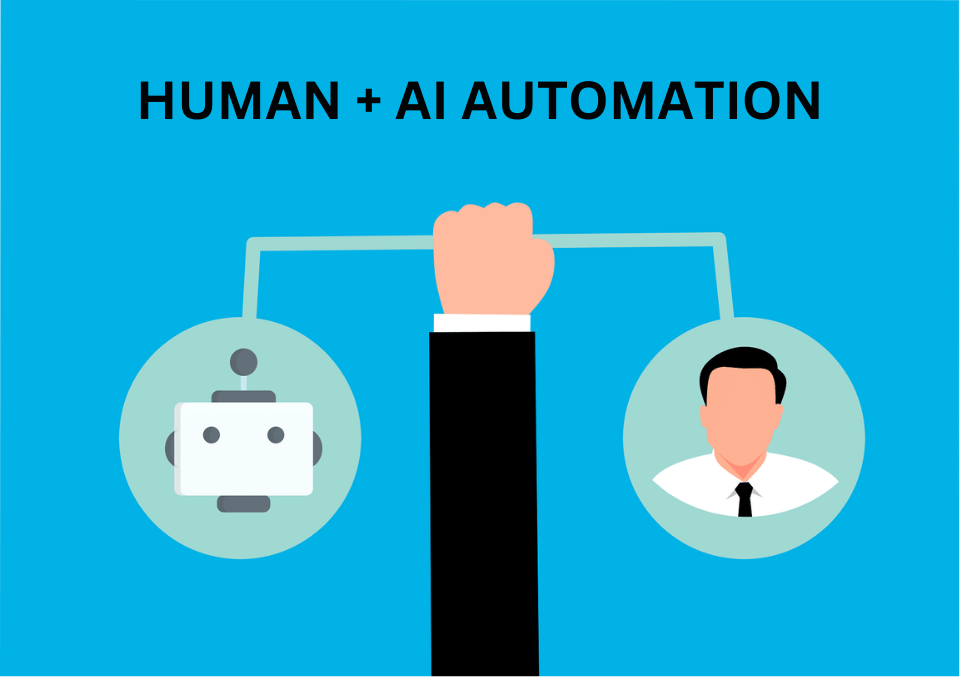
Automating Software Updates And Patches:
AI is revolutionizing updating and patching software by automating various tasks. Here’s how AI contributes to this area:
- Smart patch management: AI algorithms can analyze software and its dependencies to automatically identify and apply patches, reducing the time and effort programmers require.
- Compatibility checks: AI systems can assess the impact of updates on the existing software ecosystem, ensuring that new updates do not introduce compatibility issues.
- Regression testing automation: By leveraging machine learning capabilities, AI can automate regression testing to validate software updates, reducing manual effort and improving speed.
- Error prediction and prevention: AI algorithms can predict potential errors or regressions that may be introduced by updates and suggest preventive measures.
AI’s role in software maintenance is increasingly crucial as it enhances monitoring processes and automates software updates and patches. While AI won’t entirely replace programmers in this domain, it enables them to focus on more complex tasks and empowers them with intelligent insights to ensure software quality and stability.
With AI’s assistance, the software maintenance landscape is evolving, delivering more efficient and effective maintenance solutions. We can deliver more efficiency in our applications. Some programmers like us are always deciding the backend as it should be.
Ethical Considerations For AI In Coding
Artificial Intelligence (AI) has raised ethical considerations surrounding the potential replacement of programmers. However, it is important to consider the human element, as programmers possess critical thinking, creativity, and problem-solving skills currently unmatched by AI.
Let us think about it from a different perspective. What is an AI? Nothing but a huge set of databases linked together to form a solution to some problems that people tend to face regularly. So, when it lacks the data needed for the solution to be compiled, it will generate nothing other than: “As an AI language model….. Bla bla bla”.
It has been gradually integrated into various industries, leading to concerns about its potential to replace programmers. While AI-powered coding tools can automate certain tasks, ethical considerations must be addressed to ensure fairness, transparency, and accountability in the programming field. So, how do we deal with these?
Addressing Bias And Fairness Concerns In AI Algorithms:
- Designing unbiased algorithms: Developers should work towards eliminating bias from AI algorithms by thoroughly examining the data used to train them.
- Diverse and inclusive data: To ensure fairness, programmers should ensure that the training data represents diverse populations and does not favor specific demographics.
- Continuous monitoring and testing: Regular checks and audits can help identify any biases that may emerge during the AI algorithm’s use. This enables prompt rectification and adjustments to maintain fairness.
- Ethical guidelines: Establishing clear ethical guidelines that explicitly address bias concerns is crucial. These guidelines should be informed by input from experts in the field and should evolve with changing societal values.
The Future Of Programmers In An AI Era
The future of programmers may not be threatened by artificial intelligence. Instead, they tend to adapt and collaborate with AI systems, creating a symbiotic relationship that enhances programming capabilities and opens up new possibilities for innovation.
The Evolving Skill Set For Programmers
With the rise of Artificial Intelligence (AI) technologies, what skills do you need to adapt today to be not left around? Let us discuss this further:
- Adaptability and knowledge upgrade: Programmers must continuously upgrade their skills to stay relevant in an AI-driven industry. They should adapt to new programming languages, frameworks, and tools that align with AI technologies.
- Algorithmic thinking: While AI systems can automate certain tasks, programmers have the advantage of bringing complex algorithmic thinking to the table. This skill will be essential for developing AI systems, improving efficiency, and addressing unique challenges.
- Data handling and analysis: AI depends heavily on data, and programmers proficient in handling and analyzing large datasets will have a distinct advantage. They will be able to identify patterns, train AI models effectively, and optimize data processing pipelines.
- Domain expertise: Programmers with deep domain expertise and technical skills will excel in an AI-dominated industry. Understanding the industry-specific nuances and requirements allows them to create AI solutions tailored to the specific needs of businesses and users.
- Communication and collaboration: As AI becomes more integrated into various sectors, programmers will need strong communication and collaboration skills. Working closely with AI systems and collaborating with other stakeholders will help programmers leverage AI technologies effectively.

Collaborative Efforts Between Programmers And AI Systems
This is where I want you to focus more. Rather than viewing AI as a replacement, you and AI systems can work collaboratively, capitalizing on the strengths of both. Shake your hands with the evolving technology and learn to use AI tools efficiently to increase productivity. This collaboration offers promising prospects for the future:
- Programming AI systems: Programmers play a crucial role in developing AI systems. They design, create, and train AI models, leveraging their programming skills to set the foundations for an AI-driven future.
- Improving user experiences: By combining their programming skills with AI, programmers can create intuitive user interfaces, develop chatbots, and automate repetitive tasks, ultimately enhancing user experiences across various applications and platforms.
- AI-assisted programming: AI can assist programmers in various ways, such as automating code generation, suggesting optimizations, and debugging processes. Programmers can leverage AI tools to boost productivity, speeding up software development cycles.
- Ensuring ethical and responsible AI: Programmers are at the forefront of ensuring AI systems operate ethically and responsibly. They can incorporate safeguards, develop bias detection mechanisms, and address AI-related ethical concerns to maintain trust and transparency.
While AI brings significant changes to the programming landscape, it does not diminish the role of programmers. By embracing the evolving skill set and collaborating with AI systems, you can shape the future of technology, leveraging the power of AI to drive innovation and enhance user experiences.
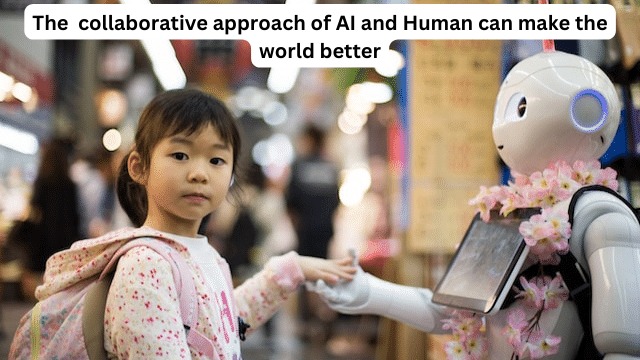
The Role Of Creativity In Programming
Creativity is vital in programming, allowing programmers to think outside the box and develop innovative solutions. While artificial intelligence advances rapidly, it won’t completely replace programmers, as human creativity is still unmatched in problem-solving and designing complex systems.
If you understand the concept of ”thinking out of the box”, you will know that AI can only think inside the box, the box being its database only. However the human brain is much more advanced than the thinking ability of any AI model, provided one uses it concisely.
The Human Touch And Creative Thinking In Coding:
- Approach problems from unique perspectives and develop innovative solutions.
- Programmers can think critically, analyze complex problems, and apply creative problem-solving techniques.
- They can use imagination to design user-friendly interfaces, engaging software applications, and intuitive algorithms.
Balancing Creativity With AI Automation:
- AI cannot replicate human creativity and intuition.
- Developers can use AI tools to streamline coding processes but must still provide the creative inputs to solve complex problems.
- AI is best utilized as a companion, augmenting human creativity with advanced algorithms and data analysis.
- By balancing creativity and AI automation, programmers can harness the power of technology while leveraging their uniquely human capabilities.
In the ever-evolving world of programming, creativity remains an invaluable skill that sets programmers apart from AI solutions. AI cannot replace the human touch and creative thinking that programmers provide.
Ethical Implications Of AI In Coding
Artificial Intelligence (AI) has raised ethical concerns regarding replacing programmers. However, the role of programmers remains crucial as they navigate the ethical implications of AI in coding, ensuring transparent, fair, and accountable algorithms.
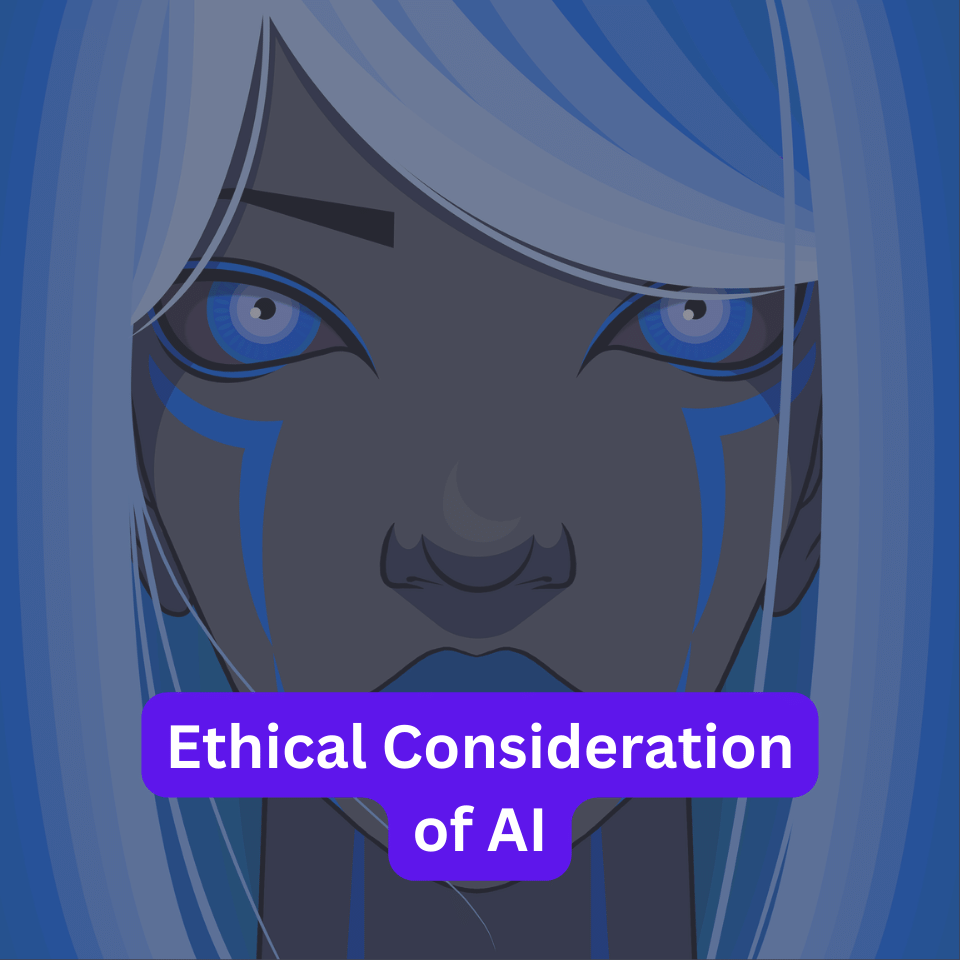
If, in certain situations, there is a big loss for a malfunction created by AI, can you hold the AI responsible? The answer is no because AI does not feel guilty or self-conscious enough to take responsibility for a mistake that may cause an industry’s downfall.
With the rapid advancement of artificial intelligence (AI), there is growing concern about its impact on various industries, including programming.
Frequently Asked Questions
In How Many Years Will AI Replace Programmers?
AI is not expected to replace programmers. It is more likely to enhance their skills and make their work more efficient.
Will AI Replace Programmers In the Next 5 Years?
AI is expected to assist programmers in the future, but it is unlikely to replace them completely within 5 years.
Will AI Overtake Programming Jobs?
AI won’t take over programming jobs but will change how they are done.
Will AI Replace Programmers In 20 Years?
AI will not replace programmers in 20 years; they will continue to work together.
Conclusion
As we explore the possibilities and advancements in artificial intelligence, whether it will replace programmers is becoming increasingly relevant. While AI has made significant developments in automating certain aspects of programming, it is still unlikely to completely replace programmers.
Programming requires technical skills, creativity, problem-solving, and critical thinking abilities that are unique to humans. AI may assist in streamlining some coding processes but still requires human intervention and oversight to ensure effective output. So still it is a very long way when AI can replace programmers entirely. Additionally, programmers play a vital role in understanding and adapting AI technology to meet specific needs and requirements.
Collaboration between AI and programmers can lead to powerful results where both strengths are harnessed. Ultimately, the future of programming lies not in competition but in a synergistic partnership between human programmers and artificial intelligence, where each complements and enhances the other’s capabilities.


